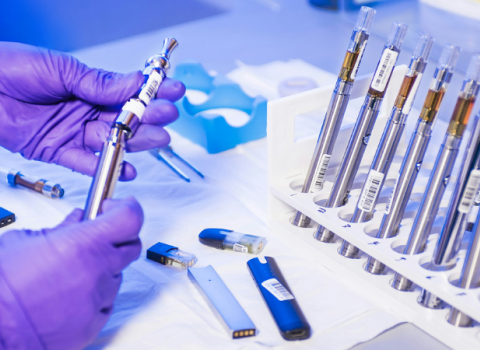
The move comes as Celtic’s first fund, launched in 2005, reaches the fully subscribed mark, with the first exits promised for early in 2008.
“We’ve shown private equity can be successful in this space,” said John Mayo, one of the firm’s co-principals.
The first of the two new funds, to be run from New York by Mayo’s counterpart, Stephen Evans-Freke, will pick up where the original fund leaves off, buying mid-stage drug development programmes, managing them through later stage development and selling them off to pharmaceutical and biotech companies.
The second, run by Mayo from London, will concentrate on taking controlling stakes in biotechnology and small pharmaceutical companies, managing the onward development of products through to phase II proof of principle, and then outlicensing.
Mayo said the decision was made to split into two funds to provide an opportunity for Euro investors and because one, large, fund would be unwieldy. “A single large fund with a more heterogeneous investment model would be more complicated,” he said.
The two funds have been launched and Bermuda-headquartered Celtic is now in a “quiet discussion period” with existing investors and others, Mayo said.
Bridging the gap
Celtic claims that its approach bridges the gap between cash-starved biotech and the denuded pipelines of big pharma. It does this not only by bringing in cash, but also by applying pharmaceutical industry expertise to drug development, ensuring products reach the standards required, and thus reducing the risks for its own investors.
While pharma companies are interested in licensing, “there is not a big sucking sound,” said Mayo. “Pharma is much more active, but is turning down a huge amount because of its quality.”
Celtic’s strategy is to take majority stakes in biotechs, or to in-license phase II products. It then progresses clinical development over 2 to 4 years, using a virtual model, in which all aspects apart from strategic decision-making are outsourced.
“Once we have a majority stake we can afford to apply resources that venture capitalists with smaller stakes cannot,” said Mayo. Existing investors who previously owned a large part of a company are happy to be diluted because they get a layer of pharmaceutical expertise.
Mayo claims the glory for splitting off the pharmaceuticals interests of the UK chemicals company ICI to form Zeneca plc, and was chief financial officer at the point that Zeneca merged with Astra AB. He also engineered the dismantling of the UK electrical and electronics conglomerate GEC in the late 1990s, leaving a core telecoms equipment business that was renamed Marconi. He was subsequently forced out when, after a huge acquisitions spree, Marconi was clobbered by the dotcoms and telecoms bust at the start of the century.
At present there are seven products in the portfolio of Celtic’s original fund, and Mayo said that term sheets have been agreed on further deals he hopes will complete by the end of 2007, and which will see the fund fully invested.
The foundation of the portfolio was the acquisition of the quoted UK biotech Xenova Group plc in June 2005 for £20 million cash. That gave Celtic two phase II anti-addiction vaccines designed to help cigarette smokers and cocaine users to break their habits, plus a phase III treatment for brain tumours called TransMid, that has since been scrapped.
Celtic later acquired a 21 per cent stake in IDEA AG of Munich, Germany, and following that licensed rights to IDEA’s Transfersome targeted drug delivery technology, along with a number of products formulated with the delivery technology. These assets are being developed by Celtic subsidiary Targeted Delivery Technologies.
Backed by this portfolio, Celtic did something else that is unusual in biotech when earlier this year it put up the seven products as security for a $150 million loan to finance clinical development programmes.
Mayo contends there is no debt in biotech because the risks are so great no one wants to lend. With its broad portfolio of advanced stage products Celtic has reduced the risk. Lenders have the security of a pool of secured assets and Celtic only needs one or two of its products to succeed to get a return.
“Celtic Pharma’s first fund has shown that the private equity model for pharmaceutical investment and development is highly successful and we look forward to replicating this success in our next funds,” concluded Mayo.





 A unique international forum for public research organisations and companies to connect their external engagement with strategic interests around their R&D system.
A unique international forum for public research organisations and companies to connect their external engagement with strategic interests around their R&D system.